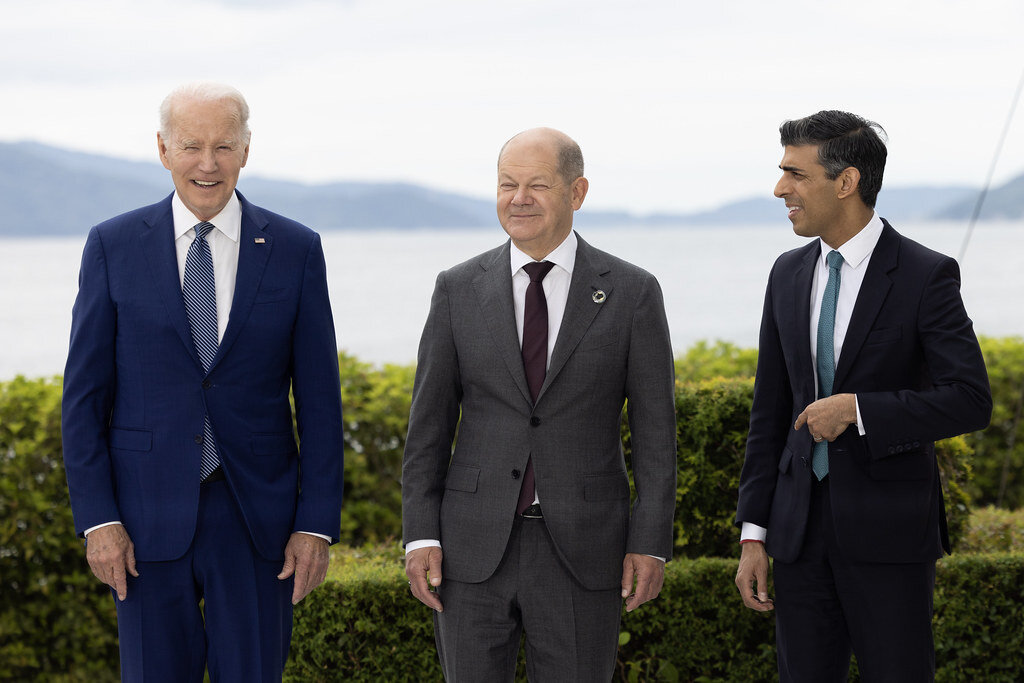Israel receives calm responses as it ravages regional stability

TEHRAN – The early hours of Friday started amidst a chaos of news and reports by U.S. media platforms that quoted anonymous American officials asserting that Israel had launched an attack on Iranian territory.
Concurrently, certain Israeli sources reported the targeting of an Iranian Army airbase known as the 8th Tactical Air Base located in central Isfahan Province.
Meanwhile, footage captured by civilians depicted unidentified objects intercepted in mid-air, yet no recorded explosion or damage was evident on the ground. Iranian media corroborated these reports, affirming that cities across Isfahan Province maintained a state of normalcy, with citizens continuing their daily routines.
General Siavash Mihandoost, the Army's senior official in Isfahan Province, attributed the loud explosion heard in eastern Isfahan to shots fired by air defense units at "suspicious" objects, as reported by Tasnim.
The international response to the news, predictably, reeked of hypocrisy and bias.
While Iran faced swift condemnation for its defensive actions against Israeli aggression, Western leaders suddenly turned a blind eye to Israel's flagrant violation of international law.
British Prime Minister Rishi Sunak, once quick to condemn Iran, labeling Iran's April 14 retaliatory attack on Israel as a "reckless and dangerous escalation," conveniently softened his stance, now merely urging Benjamin Netanyahu to promote calm in the region in a message issued on Friday.
Similarly, the French Ministry of Foreign Affairs deemed Israel's military actions as acts of “self-defense,” advocating for self-restraint among Western nations in West Asia. European leaders adopted varying stances, with some urging both Iran and Israel to avoid escalating tensions, while others emphasized the need for a comprehensive approach to address underlying conflict causes in the region. The Dutch Minister of Foreign Affairs closely monitored developments in Iran, expressing deep concern over recent events and underscoring the imperative of preventing further escalation.
While Iran's actions drew immediate condemnation and scrutiny, prompting a swift convening of the United Nations Security Council, the response to Israel's aggression lacked similar urgency and international attention. This discrepancy underscores a concerning double standard in global reactions, highlighting the complex geopolitical dynamics and biases at play in the region.
Despite mounting evidence of Israel's aggression and violation of international law, many nations have either remained conspicuously silent or issued tepid statements, failing to denounce the attack with the same fervor directed towards Iran's actions.
In a statement on Thursday, the administration of United States President Joe Biden asserted that it imposed new sanctions on Iran, saying the sanctions targeted “leaders and entities connected to the Islamic Revolutionary Guard Corps, Iran’s Defense Ministry, and the Iranian government’s missile and drone program that enabled” the April 13 attack on Israel.
The U.S. sanctions on Thursday which came in coordination with the United Kingdom, further underscored the asymmetrical power dynamics in the region.
While Iran faces relentless sanctions and punitive measures, Israel's aggressive actions are conveniently brushed aside or, worse yet, justified, perpetuating perceptions of bias and injustice.
Recent escalations stem from Iran's retaliatory operation against Israeli military installations following an Israeli airstrike on the Iranian consulate in Damascus on April 1. While Israel has targeted Iranian military advisors in Syria for years, this incident crossed Iran’s red line by assassinating seven Iranian military commanders, including a high-ranking IRGC general, on diplomatic premises.
Moreover, Israel's involvement in terrorist attacks in Syria, the assassinations of five Iranian nuclear experts, sabotage at nuclear sites, and complicity in the assassination of IRGC Quds Force chief Lieutenant General Qassem Soleimani in January 2020 had already sparked tensions.
Iran, under immense pressure from international sanctions, was forced to resort to military action to defend its sovereignty against Israeli aggression. However, the international community's failure to hold Israel accountable for its actions exacerbates tensions and undermines efforts to achieve lasting peace and stability in West Asia.
